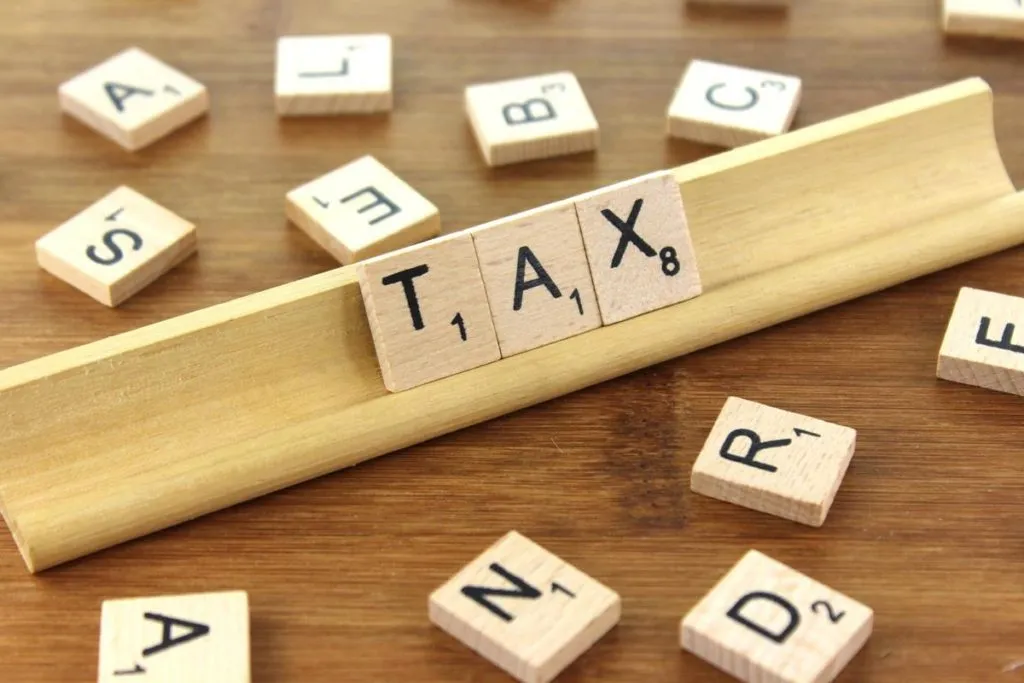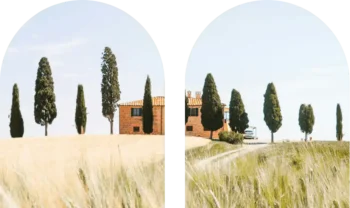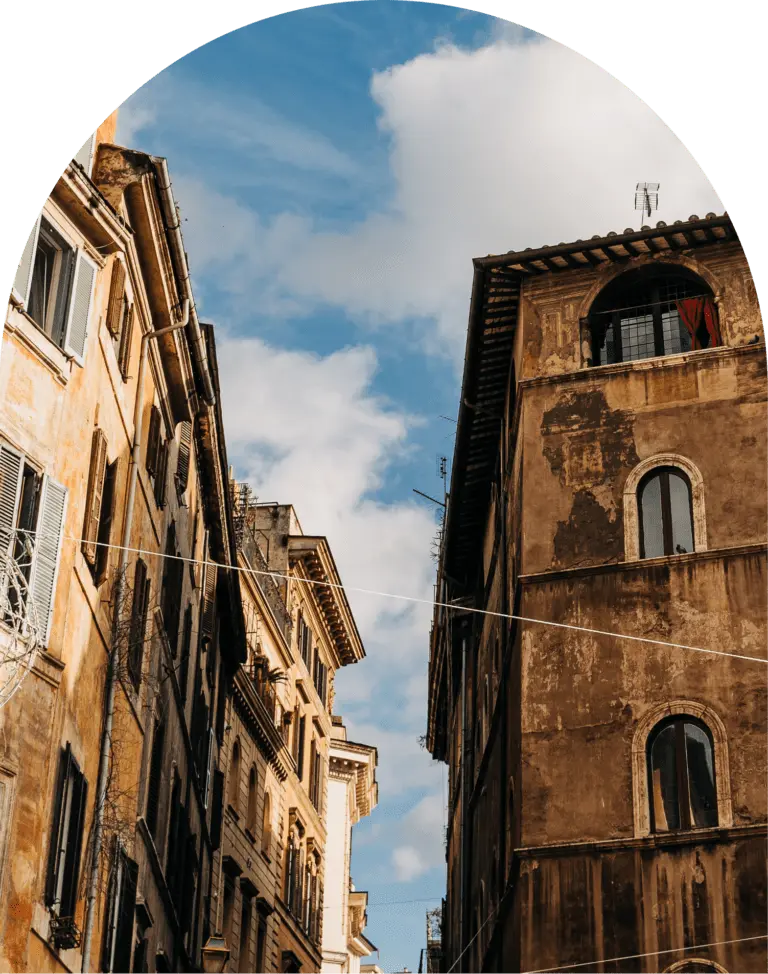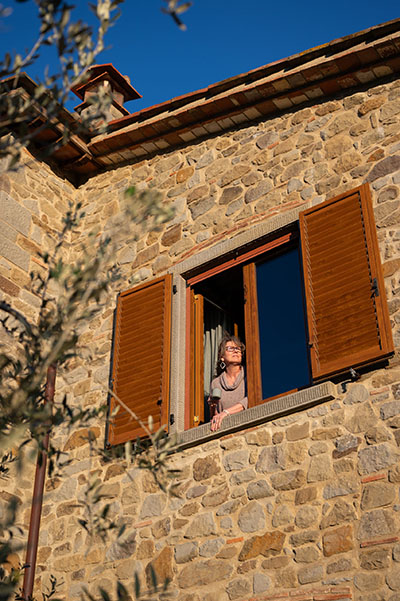It’s easy to imagine yourself living in your own charming villa nestled among the rolling hills of Tuscany or a picturesque apartment overlooking the canals of Venice. However, this dream often comes with a complex web of fiscal considerations that can get in the way of your peaceful plans of Dolce Vita.
To help prospective buyers of Italian real estate with their questions, we have asked Luca Serafini, an expert on Italian income and property tax, to walk us through the different norms regulating the Italian taxation system. Luca is an English-speaking Dottore Commercialista (Italian CPA) at Studio Galletti & Associati in Bologna.
Luca Serafini, CPA

Whether you plan to relocate to your new home in Italy full-time or prefer spending your holidays there, a Commercialista like Luca can provide critical insights on the tax liabilities and advantages that apply to your case. So, join us as we embark on this conversation, delving into the essential fiscal considerations when buying a house in Italy.
Here are the questions we asked Luca:
- I’m planning to buy a house in Italy. What property taxes will I have to pay?
- What taxes can I expect if I rent my Italian house for part of the year?
- Does Italy offer any fiscal incentives to renovate my home?
- What taxes will I owe if I choose to sell my house and move somewhere else?
- I plan on living in Italy all year round. How much taxes will I have to pay?
- What kind of tax is applied to my Italian property in case of inheritance?
- Any final tips for future homebuyers?
1. I’m planning to buy a house in Italy. What property taxes will I have to pay?
I can confirm what was written in a previous article: it mainly depends on whether you plan on moving to Italy or you just want a vacation home.
In the first case, the only tax you’ll have to pay is TARI (Tassa sui Rifiuti), the waste management tax. TARI is managed by the municipality and its magnitude depends on the size of your house and how many people live in it. It is fairly inexpensive, ranging from €100 to €500 annually.
The larger Italian property tax is called IMU (Imposta Municipale Unica) and is due if you don’t plan on residing in the house full time or if you do but the house is considered a luxury property (apartments larger than 240 sq m, rare villas, mansions, etc.). As a rule of thumb, IMU amounts to approximately 1% of the property value.
2. What taxes can I expect if I rent my Italian house for part of the year?
Renting your house can be the best way to earn a return on your investment if you’re not living in it year-round. It is however essential to bear in mind that rental income will be subject to Italian taxes. You can choose between two taxation regimes:
- the Cedolare Secca, which is a flat “no frills” 21% tax on all property revenues. This is usually convenient if you are planning to list your property as a short-term rental using online platforms.
- the IRPEF tax, which is the ordinary income tax paid by all private individuals in Italy. While the IRPEF tax rate is higher (21.85%), this might be a more convenient tax regime if you plan to renovate. You may apply deductions from your renovation expenses and significantly reduce your taxable income.
3. Does Italy offer any fiscal incentives to renovate my home?
Yes, many tax deductions may apply if you choose to renovate. However, remember that any such incentives apply to the IRPEF income tax, so you’ll benefit from them only if your revenues are subject to Italian personal income tax.
The larger and more popular deduction applies to the entire renovation cost and equals 50% of the expenses up to €96,000. The deduction is spread over 10 years and does not alter the property’s fiscal (cadastral) value. Please note this deduction does not apply to minor renovations (such as repainting or improving property aesthetics).
| Let’s assume you spend €110,000 to replace your roof and improve your property’s insulation. You will pay €4,800 fewer taxes each year for the next 10 years (calculated as €96,000 ÷ 2 ÷ 10). |
Similar deductions apply to energy efficiency interventions such as upgrading your heating system or installing newer windows. Smaller deductions apply to furniture expenses and mortgage interest payments.
4. What taxes will I owe if I choose to sell my house and move somewhere else?
The short answer is 26% on any capital gain (excess over your cost basis, or property appreciation). However, if you keep the house for at least 5 years, your income from the property sale will not be subject to taxation.
5. I plan on living in Italy all year round. What taxes can I expect to pay?
As is the case for most European countries, Italian taxes can be quite high. Remember, though, that taxes support the nation’s healthcare system, the public education system and social security, among other things.
VAT (IVA in Italy) is 22% on most goods throughout the country. Products that address basic needs, such as food, are subject to lower taxes. Prices displayed in Italian shops and websites will always include VAT.
Personal income taxes (IRPEF, discussed previously) are based on various income brackets, just like in the US. The tax rate on the lowest bracket equals 23%, while that for the highest bracket (which only applies to the portion of your income higher than € 50,000) equals 43%. While that may sound like a large number, you must bear in mind that various deductions apply and an expert CPA can help you pay a considerably lower amount.
Additionally, there is a big income tax discount for people who relocate to Italy from abroad, which may reduce your taxable income by up to 70% (and your tax liability by even more, thanks to the mechanics of income brackets). This tax discount applies for 5 or more years, depending on whether you have children or buy a house in Italy. Self-employed individuals are also eligible for significant discounts on their taxes.
All of these discounts come with specific caveats, and the assistance of an expert is always advisable.
IRPEF Tax by Income Bracket

6. Now a question for which Americans would ‘knock on wood’, while Italians prefer ‘touching iron’. What kind of tax applies to my Italian property in case of inheritance?
Italy can be considered a tax haven in terms of inheritance taxes. The tax rate ranges from 4% to 8% depending on how close the deceased person is, but lineal relatives (direct descendants, such as children and grandchildren) get a 100% deduction on the first €1 million inherited. Siblings, on the other hand, get a 100% deduction on the first €100,000 inherited. In the specific case of real estate, other taxes (such as imposta catastale and imposta iportecaria) apply and generally add up to 3% of the cadastral value (which tends to be significantly lower than market value). In some cases, for example when the inherited property becomes the heir’s primary residence, this tax can be reduced to €400.
| Let’s assume you are the sole direct descendant of a deceased relative. The inheritance comprises €200k of cash, €500k of stocks, a primary residence with a cadastral value of €300k, and a second home with a cadastral value of €200k. The total value of the inheritance is €1.2 million. You will have to pay a 4% inheritance tax on the €200k over €1 million (4% x 200k = €8k), a 3% tax on the second home (3% x €200k = €6k), and €400 on your primary residence, for a total of €14,400. |
7. Any final tips for future homebuyers?
My professor used to say that “Studying hard will get you higher grades, but won’t make Latin less boring”. I guess the same applies to taxes. Luckily there are subject-matter experts that can save you from the boredom of fiscal codes and the risk of overpaying on your taxes, so once you’ve found the one that clicks with you, you will be fine. The only thing that we constantly tell our clients is “Meglio prevenire che curare” or “It’s better to prevent than to cure”: when in doubt, ask your commercialista.
Also, the taxation of foreign citizens can be a niche topic, so I would advise you to rely on a sizable and experienced accounting firm, just like ours.
If you would like to reach out to Luca with any questions, you may do so at [email protected].








